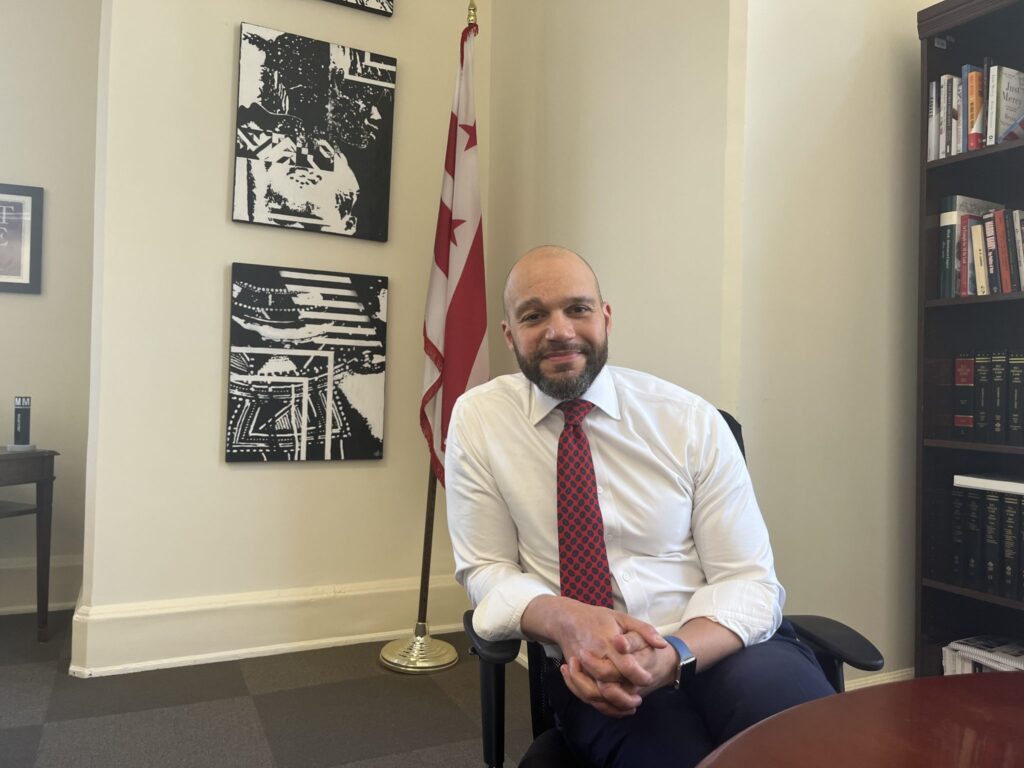“What is the role of Community Land Trusts in maintaining and creating affordable housing?”
Community Land Trusts (CLTs) are a tool in our toolbox of ways to provide affordable housing. These nonprofit organizations buy land at market rates and offer affordable housing options through leasing and homeownership programs. Unlike other affordable housing models, the CLT owns the land and limits how much homeowners can sell their homes for.
Here in the District, the work of the Douglass Community Land Trust (Douglass CLT) is an example of how CLTs provide affordable housing. Douglass CLT manages 233 affordable housing units with a mission of creating a more inclusive community while combating displacement. To give you a sense of how Douglass CLT preserves housing affordability, they are currently selling one of their housing units that has an appraised value of $790,000 for $460,000. Additionally, many of the families that live in the 233 units make between $30,000 and $80,000 per year. By acquiring valuable land in the District and then offering it at significantly reduced rates, the Douglass CLT demonstrates how CLTs can help make housing affordable.
CLTs offer benefits beyond housing. They can also lease land to businesses and establish parks and recreation centers. A notable historical example is New Communities in rural Georgia, widely recognized as the first CLT. Established in 1969, it encompassed a 6,000-acre farm collective owned by Black farmers. This remarkable initiative represented the largest tract of Black-owned farmland in the United States at the time. In an era of displacement driven by racism, New Communities provided a safe haven for Black people, offering collectively owned and operated land where approximately a dozen farmers cultivated the land and shared in its economic gains from 1969 to 1985.
Despite their benefits, CLTs do face challenges. One is coordinating many groups of people — residents, local government and other stakeholders — for their setup and management. CLTs are typically governed by a board of people with extensive knowledge in housing, residents of CLT properties and active community members. Another challenge for the CLT model is that some homeowners prefer owning both the land and their home for maximum equity, while others may not wish — or be able — to participate in the collaborative decision-making process common in CLTs. In the District, a major challenge for CLTs is the limited availability of land. CLTs have the most impact when they can operate on a larger scale, extending beyond individual homes or apartment buildings to encompass the development of whole communities. The aim is to create a vibrant mix of homes, businesses, apartments, and parks within the CLT framework.
As chair of the D.C. Council’s Committee on Housing, I am reviewing a bill introduced by At-large Councilmember Christina Henderson called the Community Land Trusts’ Access and Homeowner Support Amendment Act of 2023, which would help create CLTs in the District. One key provision of the bill is giving priority to CLTs in bidding on property tax sales before they become available to the public, so CLTs could potentially acquire the property at a lower cost. A property tax sale occurs when a property is sold by the government to recover unpaid property taxes and can lead to properties being sold at lower prices than their market value. My Housing Committee team and I are working with community members and representatives from CLTs to further develop the bill. Our objective is to enhance the legacy of CLTs by empowering Black individuals and providing more affordable housing.
Editor’s note: This is part of a ongoing series of columns that we hope will advance meaningful conversations centered around homelessness and poverty in D.C. We are actively soliciting government leaders, officials and other leaders working in this space to participate. If you have a question you would like to pose to a councilmember or city official, please send it along.








